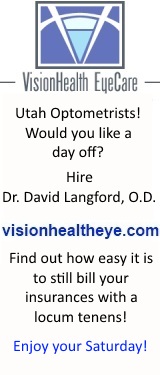 IHS health delivery for commissioned corps dependants
IHS health delivery for commissioned corps dependants
Our service unit decided at the beginning of this year to break a long-held tradition. Non American Indian spouses and children of commissioned officers have usually been granted direct care at IHS clinics from service unit CEOs. In the past, what this meant was an office visit was performed and not billed to any insurance companies. Now, while non-Indian CC dependants are still granted care within IHS facilities, the new policy is to bill insurance, and the amount not paid by insurance is passed onto the patient. That is fine for the officer because his/her insurance covers 100%. The family will usually be on Tricare prime remote, which has a low deductible but only covers 80% for out of network providers, and IHS is out-of-network. According to an e-mail I was forwarded, IHS doesn’t ” . . . plan to become a provider within their networ[k] (it will have a negative impact on BMP billing, which is higher volume).”
So, someone crunched some numbers and determined that if IHS became a preferred provider for Tricare (accepting a lower fee as payment in full for both officers and dependants), they wouldn’t make as much money compared to staying out-of-network and getting the 100% fee charged for just billing the officers.
So, because Tricare reimburses so well for out-of-network visits for officers, their dependants get the shaft. Making the decision to bill all visits for non-ben CC dependants was done in the name of revenue enhancement; however, I don’t believe they will see a difference in revenue. The number one reason is that all things being equal (paying 20% co-pay to either IHS or a private doctor), I will go to the place with the best customer service and most convenient location. Often a commissioned officer will live in a town which is 20-30 miles away from the service unit, so the best location is in town. If the town happens to have doctors who accept Tricare allowables as payment in full, it’s a no-brainer.
Another reason why IHS won’t make any more money with this new policy is that because it ticks me off, I will avoid utilizing the IHS clinic, so their precious CC officer 100% out-of-network fee will not be earned.
Another negative impact will be loss of officer productivity. Anytime I or my kids are sick, I will spend more time out of clinic to go off-site for doctor visits.
Another issue, being a professional, I have the opportunity to give exams to my family. There is no way I’m going to pay IHS 20% per dependant for an exam that I perform. Now, if I were to choose to examine my dependants “under the table†that would make me subject to disciplinary action.
IHS can still get revenue enhancement and satisfy me if they would become in-network providers for Tricare, accepting Tricare allowables as payment in full. That way, everybody wins. They get money from exams on my family. I can still examine my family, and I don’t miss as much work because I can stay onsite to take my kids to the doctor.
An aside, my service unit claims that they aren’t able to bill Tricare for dependants because it is another government agency, so they are going to pass on 100% to the patient. This is absolutely false because I contacted a Tricare customer service representative and a claims processor and both stated that Tricare disburses payments to IHS facilities. (Of course if one is Native American, the Tricare claim would be denied, and if a claim is approved they would only pay 80% since IHS facilities are out-of-network). Our area office is currently investigating the Tricare billing issue.
I should point out that not all IHS service units are billing cc dependants, but it seems to be a growing trend. It is a very disappointing trend, and a slap in the face to me. I am the son of a PHS cc officer, and I grew up getting all my care at IHS clinics. I had joined PHS/IHS expecting the same arrangement for my family, but now that perk has disappeared from my service unit. I hope it doesn’t disappear from yours.
Comments Off on IHS health delivery for commissioned corps dependants











